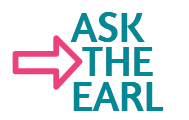Day 15 of 30 – Robert Earl’s Prospective Agent Mentorship Guide – Digital Agent Show
Can I get a loan or some type of financial aid for the real estate classes?
The short answer is yes, but not in the traditional way that you think about financial aid.
Financial Aid
Financial aid usually refers to the loan programs available to students that are attending a College or University seeking a 2 or 4 year degree.
The federal government and private sector financial institutions have loan programs in place for those students seeking a degree.
But a real estate license does not require you to take college classes. It is a stand alone course.
I have always struggled with the term real estate “school.” In some ways, yes it is a school that teaches information and tests you for that information. It is not a vocational school in the traditional sense of the word because it does not teach you a trade. It presents to you the principles and practices of real estate and requires you to remember key components of what was presented via a multiple choice exam, as required by the states.
The vocational portion is supposed to be handled by the real estate brokerage companies, but this is not regulated and some companies choose to not provide a tremendous amount of sales training, especially for new agents. Some companies strictly focus on experienced agents.
Because of this, the federal and private financial aid packages are not available for real estate schools or courses.
What about loans?
There are two types of loans, collateralized and non collateral loans.
Colleterized have an asset pledged as a back up to the loan. If the loan isn’t paid, the lender or bank is entitled to gain possession of the asset. This is the type of loans used for homes and cars and boats.
Because there is not an asset involved with a real estate class, these types of loans lead us to non collateralized loans.
Personal loans, business loans and credit cards fall into this category. The bank and financial institutions issue these loans based upon your ability to pay the loan back and your track record of past payments, indicated by your credit score.
Because you are not yet in the real estate industry, you do not have a track record of income that the bank can use to see if you are able to pay it back. And because real estate sales is a commission business, there is not guarantee for the bank that you will make any money to be able to pay them back.
So these types of loans are very difficult to obtain.
Personal loans might be the best bet. If someone came to me asking to borrow money for a real estate school, my first question would be, “How do you plan on paying it back?” I would expect to see a business plan from you. I would also ask who you were working with as a mentor and what company you planned on joining so that I could make sure that you were going to be properly trained to be successful.
Some credit card companies offer cards to borrowers with greater approval chances for those with lesser credit scores, but they always charge a higher than average interest rate for these programs.
Will FAFSA pay for online real estate schools?
In the evolving landscape of education, online real estate schools have emerged as a valuable resource for aspiring real estate professionals. A common question is whether FAFSA (Free Application for Federal Student Aid) funds can be used to cover the costs associated with these programs. Unlike traditional college or university settings, where FAFSA can be applied to a broad spectrum of degree programs spanning several years, online real estate schools typically offer shorter, more focused courses. This distinction often means that FAFSA and similar financial aid programs are not applicable.
However, the lack of FAFSA support doesn’t leave prospective students without options. Many online real estate schools understand the financial constraints that students may face and offer flexible payment plans to make education more accessible. For instance, schools like The CE Shop provide tailored payment solutions that allow students to invest in their education without the upfront financial burden. This approach ensures that students can begin their real estate education journey with a manageable financial plan in place.
It’s crucial for aspiring real estate professionals to consider the initial investment required not just for education but also for launching their careers in the real estate industry. Starting a real estate business involves various expenses beyond education, including licensing fees, marketing, and operational costs. Therefore, when exploring educational options, it’s essential to plan financially for the entire career pathway, from education to business establishment.
In conclusion, while FAFSA may not cover online real estate schools, the availability of payment plans offers a viable path for those committed to entering the real estate field. As the industry continues to grow, the adaptability and accessibility of online education will play a crucial role in training the next generation of real estate professionals.
So Robert, What can I do to cover the cost of the class?
I have reviewed dozens of real estate schools over the years and have even written an article as to which one is the best based upon my evaluation of a number of criteria.
The number one school on this list, The CE Shop, offers a payment plan for their pre-licensing courses.
Here is how it works.
The CE Shop Payment Plan
First Payment: Due on the day of purchase 33.33%
Second Payment: Due 30 days from first payment 33.33%
Third Payment: Due 30 days from second payment 33.34%
Total: 100%
The following terms and conditions apply to payment plans. The customer agrees:
1. That the school is authorized to charge my credit card for the payments due on my account as the payments become due (in 30-day intervals); and
2. That the school is entitled to suspend my course in the event that I miss a payment for any reason and that the account will stay suspended until any past due payment(s) are received; and
3. That I am not entitled to receive my Certificate of Completion for the course until the school has been paid in full for the course; and
4. That the school is entitled to charge my credit card an Administrative Fee of $9.99 per payment made under the Payment Plan. Under no circumstances am I entitled to a refund of any Administrative Fees paid; and
5. In the event that any payment is not made per the above terms, the amount of the total unpaid balance shall be due and forthwith payable and the school shall be entitled to collect the full remaining unpaid balance. In the event that the school incurs any costs and/or fees (including reasonable attorney fees) in the collecting of any unpaid balance, the student agrees to pay said costs and/or fees and said costs and/or fees will be added to any unpaid balance.
This ⅓, ⅓, a ⅓ payment plan makes more sense for some states than others.
The cost of the Florida pre-licensing Value Package, before any discounts is $229 as of this writing.
I am going to be honest with you. If you are not able to cover that amount at the time of purchase, then you probably should wait and save up some money. I’ll explain more in the next section why I am saying this.
The administrative fees alone would cost you over 13% of the total purchase price. That is pretty steep for this purchase.
For a state like New Mexico, the payment plan might make more sense. The purchase price before discounts is listed as $929. The payment plan charges work out to be just over 3.2%. The 3 monthly payments would work better on the students cashflow during that 90 day period.
My perspective on Real Estate School Financial Aid and Loans
When I talk to prospective students / agents and the first thing that they ask about is financial aid, or that they need to save some money for the real estate class, I always ask them a follow up question.
“Do you know how much it takes to get your license and activate it so you can start selling real estate?”
A majority of them do not have an answer to that question.
And that is ok. You don’t know what you don’t know.
As I explained in this article, the total cost to pay for your class, apply to the state, become a member of the real estate associations, subscribe to the multiple listing system and join a company will run anywhere from $1,500 to $2,500 depending on the state.
The real estate class cost is just a small portion of the overall cost.
And if a real estate company indicates that they are willing to cover any of these costs for “free” you need to be very careful and beware. There is always a string attached that will end up costing you thousands more in the long run.
These are the startup cost.
You are starting your own business. The way I like to explain it to prospective agents is like this. Instead of buying inventory, you are investing in education, licensing and start up costs.
If you wanted to start a business in a mall, you would have to buy the items that you were selling and stock the store.
If you wanted to start an online store, you would need to invest in a course of two to figure out what you are doing.
A career in real estate requires start-up costs. And the cost that I outline above don’t include the cost you will have once you become licensed or until you cash your first commission check.
The real estate class cost is just a small portion of these start-up costs. Not to say that they are not going to have an impact on your pocketbook, but so are the overall investments. I just want to make sure that you fully understand this before you go to far down the path looking for financial aid for real estate school or obtaining a loan for your real estate classes.







